#Redeemed Darth Vader
Explore tagged Tumblr posts
Text

288 notes
·
View notes
Text
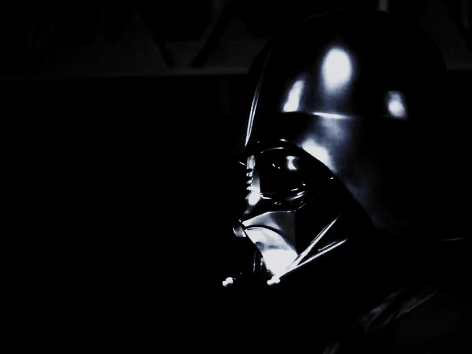





"I can feel the conflict within you, let go of your hate"
nova's 50 follower celebration
a scene that made you feel hopeful from any movie or show
for @chaoticroad
#*novasedits#darth vader#luke skywalker#return of the jedi#star wars#*50followercelebration#tusergabriela#usershale#usermaggo#useramyba#userbariss#usermelanie#tusergeo#tusernaij#tusermelissa#xuserann#xuseremily#chaoticroad#vader and luke#what can i say? i was always hopeful that vader would be redeemed#return of the jedi was my favorite movie as a child#vader was always my favorite when i was a kid and i loved his redemption arc
368 notes
·
View notes
Text
Who's the Worst Father


I wanna see something
reblog to get more votes plz!
#star wars#darth vader#disney#chicken little#disney movies#polls#they both have dead wife sindrome and redeemed themselves at the end also helped their son to defeat evil (not really evil in CL's case)
52 notes
·
View notes
Text

Belated Birthday present for @voxmyriad who is absolutely awesome and deserves the whole world.
This is from our post FO Semi-redeemed Vader AU where after a temple collapses on Cal and Vader mid fight, everyone's favourite lil Scrapper baby can't resist fixing what appears to be a really very terribly designed life support suit because he's far too soft for his own good, and in the process, gains a ferally powerful and aggressively protective guard dog.
#cal kestis#anakin skywalker#darth vader#vaderkin#redeemed vader#sort of#he's still a very angry boy#and really is only Not Angry about exactly one (1) baby jedi#and maybe also his droid#BD-1#fallen order
40 notes
·
View notes
Text
This might be an unpopular opinion, but if they are redeeming Tai lung in the 4th movie, then I need to see some regret from him for his actions and need him to put in some work for it.
In my opinion, at this point in time, he doesn't deserve a redemption. Yes, Shifu pushed him his whole life to be the best and become the dragon warrior, but he was still grown when he got told no. Then instead of accepting his disapoimtment and moving forward with his life, he proceeded to throw a tantrum that hurt the village and put innocent lives in danger. In that whole first movie, he never once took responsibility for his actions and chose to lay the blame on Shifu. If that's his attitude in the 4th movie he can go back to the spirit world at the end for all I care.
Actually, please let someone call him out on his shit. My top picks would be Tigress, Po, or even Shifu himself. If they redeem him, so be it, but I need him to show some actual regret, a want to change, and put in the work for it.
#kung fu panda 4#tai lung#kung fu panda#im not agaisnt him being redeemed but i need to see him put in the work#please don't pull a darth vader where he does one good act and dies in the end give me a zuko redemption
76 notes
·
View notes
Text
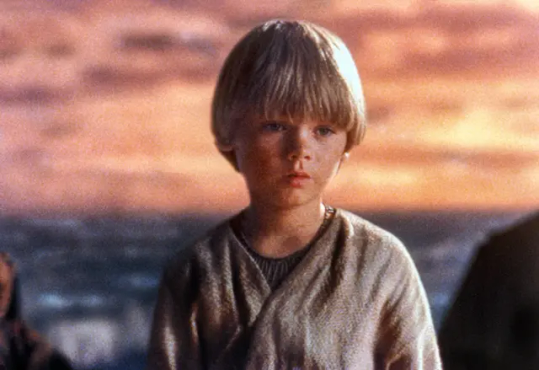




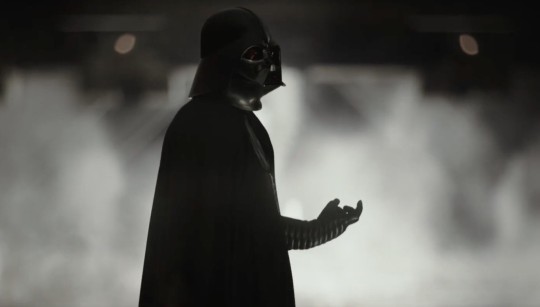
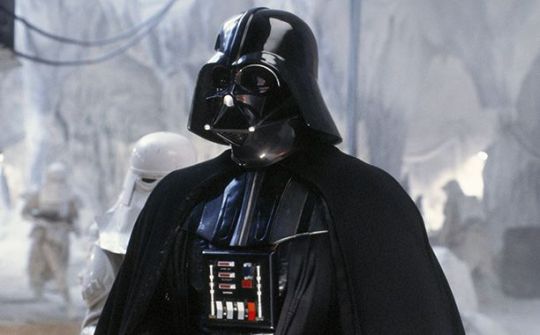
Anakin Skywalker/Darth Vader Appreciation Post
May The 4th Be With Ya'll
#Darth vader#anakin skywalker#star wars#tragic villain#Sith lord#dark lord#Jedi#bad fathers#redeemed#great villain
18 notes
·
View notes
Text
Redemption Arcs, Christian hegemony, and why I don't like the former term as often applied
This discussion around redemption and suffering and characters earning their redemption by suffering has been floating around for quite a while, and I’m not a Tumblr user (well, I am now) so I occasionally came across it, and then lost track of it again. It was very, very interesting and thought-provoking, and it sat at the background of my musings for quite a while, until I decided that I still feel strongly about it, strongly enough to join Tumblr and add my two cents (well, given the length of what I ended up with, more like twenty dollars). But I lost track of the original posts I reacted to, so I’m sorry if some of this ended up a bit confusing. I still want to share it because - you may be surprised, but as a Christian, I actually agree wholeheartedly: this idea about redemption arcs and suffering is wrong and needs to go away.
(I still use the term in AO3 tags, because it's an established tag, but I decided to start using my preferred term, too, where applicable. Also, the idea that characters earn redemption by suffering? Heck no, that's not going to happen in my stories - and if you see them sliding into something resembling it, without making clear the nuances I get into below, I BEG YOU to point it out to me.)
Because I would argue that what it says is not based in Christianity at all, it's actually directly contrary to Christianity.
TL;DR: It's not a Christian idea because there is a distinct lack of Christ in it. And we should call it the repentance arc.
Since I wrote the basis of this whole thing in my own notes years ago, I have also come across the term “Atonement Arc”, and how the idea of atonement is rooted in Jewish traditions. I haven’t really read through the discussions of it yet, but I believe the main gist is that the latter has to do with making amends while the former can be passive. And, well, despite the differences, Christianity stems from Judaism so it actually still maintains some of the same ideas - or at least the version of it I grew up in does. So I have zero problems with this distinction, I agree. I just disagree with many people's careless usage of the term redemption. Therefore I maintain that the sort of thing in fiction people are railing against and that we’re used to calling Redemption Arcs should be called Repentance Arcs, and this is a discussion of why. And why you may still use the term Redemption Arc in some very specific instances. Please do read the long version, because the above will hopefully make a lot more sense if you do, and I suspect various aspects of Christianity (and the whole big contradictory mess of various churches) may also begin to make more sense if you do.
Another needed forewarning so you know exactly where I’m coming from: I’m not Catholic. I’m Czech, and a member of the Evangelical Church of Czech Brethren, which, an immediate warning to those familiar with (American) evangelicals, is NOT THAT either, it’s just a bit of a translation hitch that got codified in the English version of my church’s name. The short of it is that we’re a bit of a unicorn and actually came about by unifying different strands of Protestant Christianity, are currently on the liberal side of things, and reside in a country that’s currently overwhelmingly agnostic. So, not Catholic, not evangelical in the English meaning of the word. I suspect a lot of the ideas that may lead to this particular idea about redemption are specifically Catholic(-adjacent), or maybe in some cases may stem from the “us versus the world” attitude evangelicals in the English sense often adopt (which does also seem to make them maybe particularly fond of certain aspects of early Christianity that I will touch on below), and I cannot really comment on either end of the spectrum from an insider POV - what you get here is the POV of someone who knows just enough to possibly be able to pinpoint it exactly, or possibly get it entirely wrong.
All I can say on that subject is that if these ideas do officially exist in Roman Catholicism, it’s probably exactly why there are so many other Christian churches that don’t agree with Roman Catholicism, see Final Notes waaay below. Also, from what I do know of Roman Catholicism, if the idea does officially exist, there’s probably a lot of theological legalism and subsequent zig-zagging around its own limitations that got them there, and it quite likely does not mean entirely what people think it means. My own church gets out of a lot of those theological legalisms and meanderings that other churches can get mired in by openly accepting several different historical creeds and essentially answering many “either-or” dogmatic questions with “Both. Both is good.” While it can make us annoyingly lukewarm about a lot of things, it does help in maintaining a degree of healthy scepticism about human conclusions about God. Two sides of the same coin, really.
Anyway.
The idea of earning your redemption through suffering is definitely an attractive narrative idea; I’ve definitely succumbed to its dubious charms myself many times, and probably will again in the future. But what it actually says about redemption isn’t at its core a Christian idea. It’s just our baser instincts appropriating Christian language; it’s a twisted idea that seems Christian on the surface but isn’t at all at its core. It’s not Christian faith that tells you you have to suffer to earn your redemption; it’s the lack thereof, it’s an insufficiency of faith.
What this idea about ���redemption arcs” says is that you can, or indeed that you have to, earn your own redemption on your own.
What Christianity actually says is “You can’t, but you do not have to fear and fret because Jesus did it for you.”
The response to that, then, is repentance: recognising you did something wrong, and atoning for it by making amends and sinning no more.
So, yeah, Christianity doesn’t negate that at all - at least not Christianity as I know it. (Jesus doesn’t tell people “go, it’s okay to do whatever you like now,” nor, ahem, “go and get yourself killed”; he says “go and sin no more.”) Roughly speaking, and take this as my own lay interpretation of course, what Christianity says in opposition to other religions is that your redemption for all eternity and the reparation of your relationship with God isn’t necessarily dependent on how well you manage to make amends before you die, or whether other people accept your efforts, and other things like that that you may not always be able to do anything about. (Can you predict the time of your own death to time your atonement wisely? Of course not.) It can be okay between you and God if you accept that it is because He chose to give you that chance; and now it’s simply up to you to go and act the part.
Zacheus is an exemplary New Testament case hitting all those beats like clockwork. Jesus chooses to visit him; and it’s only after that is already decided that Zacheus announces his intention to make amends and change his ways. We have zero indication that Zacheus suffered anything beyond a change in lifestyle; but at the same time, the story would not be what it is without Zacheus deciding on that change. It’s a sort of mutual process that reflects back and forth, and both sides do their part, but Jesus starts the process.
(My own lay interpretation; but I have heard pretty much this exact description of the relationship between God and people as being started by God but from that point onwards being mutually reflective, from both a Catholic deacon and a minister of my own amalgamated Czech Protestant church, so I think it’s safe to say it’s a more universally Christian idea.)
And Jesus speaks about being given to save mankind, he speaks about the need to repent or else perish, he tells stories about people being saved by someone else’s intervention. In all of that, I don’t recall him ever saying “you need to suffer for your redemption.” Suffering is a result of not being redeemed, or just of living in a broken world, not a prerequisite for redemption.
I think this whole notion above of how the popular idea of suffering for your redemption isn’t really Christian at all may also be a bit clearer to me because I’m Czech and you basically can’t say “redemption arc” in Czech to describe a character’s individual story arc. The Czech term for “redemption” retains the original meaning of “to redeem”: “to buy out (of a bond/punishment)”. And the reflexive form of the verb (“to redeem oneself”)... doesn’t really happen much in Czech. Maybe because we actually have a verb for “to become/make yourself better (in behaviour)” instead that could well be used in the non-religious contexts for that process? But the language does also reflect the fact that you usually need a separate Redeemer for that transaction to take place.
That’s a bit of a language aside (my hobby horse), but it does point out some important things regarding the Christian idea of redemption: It is, so to speak, a transaction where the sinner is an object, not the primary actor. Which sounds kind of weird summed up this way but - the primary actor is exactly where the two ideas about redemption clash, and why, as a Christian, I wholeheartedly agree with the distinction between redemption and atonement.
What’s Christian, admittedly, is the idea that some suffering is involved in the transaction; but the whole point of Christianity is that it isn’t the sinner who suffers it. Without that central idea, it’s not Christianity - if there’s no Redeemer involved, there’s no Christ for Christianity to be named after in the first place!
Of course, most fictional universes lack such a Redeemer, and that’s probably where our baser instincts clamouring for blood crowd back in. I think the existence of those instincts is basically why Christianity does involve the element of suffering: People kind of instinctively know that some offences cannot be so easily swept away. For some people it’s very personal. But that presence of suffering in Christianity is still a message of hope and reconciliation - if both sides can accept it.
If not, I think it’s actually equally a message of hope for the victims in that God knows what it’s like.
There is also, admittedly, some talk of “suffering with Christ”; but as far as I can remember, the people explaining Christianity in biblical times always present it as a consequence / choice, not a prerequisite. I also need to point out the use of “with Christ” rather than “instead of” (duh). I strongly suspect that kind of talk was at least partially a result of the fact that in the beginning of Christianity, the likelihood of you suffering for it was pretty high. (It still is in some parts of the world, isn't it? Also, while we're on the subject, kriff off to some American evangelicals who know next to nothing about the rest of the world and think they're being persecuted.)
Speaking of which, I believe I do actually have something of an idea where Roman Catholicism may have gotten its martyrdom for redemption tendencies, and how that may have filtered down into a much cruder idea that forgets a Redeemer exists. There’s a concept of “baptism of blood” in Roman Catholicism. This comes from stories of early Christianity and persecution of Christians (and I guess also persecution of Christians in other parts of the world in later eras), about people who became Christian by belief but were killed before they were baptised. In other words, it’s a legal loophole for the technicality demanding baptism for salvation. As you may guess… I’m personally a bit wary of thinking God can’t see someone is a believer if they happen to yet not be baptised. As I said, Catholics probably got there by somewhat convoluted theological meanderings. For all I know it probably started out as a reassurance for the loved ones of such people.
It’s easy to see how someone (the whole of the Roman Catholic church, sarcasm adds) can get carried away by such stories of martyrs, and kind of forget that it’s not the death but the belief that matters most. It becomes an aspirational trope instead of an explanation of harsh realities.
One thing to bear in mind here is also that a lot of “Hollywood Christianity” is about as accurate as “Hollywood history” - I guess they often go hand in hand, too. A lot of the things in popular culture, ideas and imagery that you might think are inherently Christian, are in fact more of a fanfiction of a fanfiction of a fanfiction of a fanfiction, where the original fanfic is most likely Paradise Lost or medieval legends steeped in eclecticism. In other words, nothing involved in that chain of inspiration is actually Biblical canon. Or maybe, in some cases, it is one particular aspect of one specific branch of Christianity and its theology, magnified out of proportion. So… maybe roughly Christian in origin, yes, but not at all representative of Christianity’s core beliefs. (Much like, say, the Golem legend is one of the most famous and “typical” Jewish narratives out there, but it hardly has anything to do with the life and faith of practising Jews nowadays, and the various riffs on it in popular culture even less so. I think that’s one pronouncement about another religion I can make safely.)
So, yeah, from my position as a Christian, the term “redemption arc” needs to go - unless there actually is a Redeemer.
(Come to think of it, I may have to start using an Atonement tag on AO3, too, where applicable.)
It’s safe to say that Edmund in Narnia does have a redemption arc; but as that’s the case, it’s also important to note in this context that he in fact lives to apply its lessons. An actual redemption arc does not require the penitent’s death.
An argument could perhaps be made for Darth Vader having a redemption arc, but absolutely not because he dies in the process; it’s because he is loved despite everything and finally chooses to respond to that love. He might arguably have an even better redemption arc if he actually stayed alive like Edmund does (although I guess his death is a neat tying off of loose ends from other narrative standpoints. It’s the sort of thing one could, and fandom does, argue about for decades.)
On the other hand, Kallus in Star Wars: Rebels has a repentance / atonement arc, and it’s a very good one in my opinion. He doesn’t earn his redemption by suffering, he suffers because he’s chosen to make amends and do better from now on and the odds he faces are too high. It’s sort of acknowledged in the show itself, I think, when Kanan tells him “Thank you for risking everything.” Kallus’ risking everything wasn’t a way for him to earn his redemption; it was a sign of his already being one of the good guys now, and so he is thanked for his efforts, because they do count, they don’t exist just to balance his account to zero.
The same applies to Edmund, in fact: he goes on to face the White Witch in battle, and he nearly dies in the process, but that’s actually after Aslan’s sacrifice (and after he’s had his one-on-one conversation with Aslan), and he’s in danger simply because the Witch is a powerful opponent and Aslan’s intervention has given him the courage to fight her to begin with.
I’m trying to figure out where that other famous repenting dead, Boromir, falls in all this; but I think you could make the same argument even there. Boromir sees his fast-approaching death as a failure in the face of overwhelming odds; Aragorn reassures him that he did not fail, that he had in fact won, because he did turn back from the Ring’s influence and chose to do the right thing, regardless of consequences. (I’m speaking about the book here because that’s the version of events I’m closely familiar with.)
With all that said and laid bare, I think I now actually have an idea of how this whole situation may, in fact, have originated in Christianity. But it would have happened in a very indirect manner, with false turns along the way.
Aside from the “baptism of blood” technicality, I think the main source of this annoying trope may be one that kind of got degraded and lost some of its crucial components, especially the faith involved, over time. You see, in openly Christian works, you may get a dying repentant who dies in peace and reconciliation. But the point is, that happens because of the Christian idea that the relationship between you and God is what matters the most. So if you recognise your sins and actively regret and accept God’s forgiveness, that’s what matters the most, so it does not matter that you’re dying and will never get the chance to set things right in this world. It’s a comforting thought; it’s a thought that reassures you that even if you decide to change and then get hit by a car and die the very next day, or the very decision to do the right thing is immediately costing your life, the decision to change was not for naught. And in an openly Christian work, some variation on that may be stated outright.
But then it also may not be stated outright if a Christian writer assumes they’re writing for a Christian audience who knows that.
(The one instance that stands out to me clearly, and that helped me see it for what it is, is Old Wabble in Karl May’s books. KM may be problematic in many respects, but at least here he went out and had his characters say what he meant instead of just relying on a trope.)
From there, of course, it’s only one step to the Boromir situation, where the work itself isn’t exactly openly Christian but the author is and is operating in that mindset. ( It also does support the thought that Darth Vader’s repentance/redemption arc is rooted in Christian ideas and tropes. I’m not really refuting the fact that the trope is probably Christian in origin - I’m criticising its execution in most cases that dilutes those Christian origins and leads to frankly dangerous ideas about the nature of redemption / repentance. And the nature of Christianity.)
Here the problem begins, because then non-Christian authors (or Christian writers who don’t think things through) pick up the narrative device without the underlying thought.
And then you reverse-engineer the underlying thought from the prevalent trope and get it exactly wrong.
So, again, I propose the latter term: We should call it the repentance arc. It hits the beats that pretty much all such character arcs need to hit - even the ones where you might argue for the presence of a Redeemer. The point is the changing of one's attitude, not the suffering. And it’s actually a more accurate term for Christianity, too, one that won’t lead Christians to believe things they shouldn’t. (Just how much suffering is enough? As a Christian, you should not think that way.) So it’s an overall much better term for all sides.
Unless, of course, other religions have other takes on this and disagree with that particular term, in which case we might have to keep looking.
On that note, I also wonder, and can’t really comment on, where other European religions and belief systems like those of Ancient Greece and Rome or the Celts or Old Norse fall on this issue. Because I also think a lot of “culturally Christian but actually not rooted in Christianity” ideas from European/white society may actually originate from that whole period when becoming officially Christian was politically expedient (whether for prestige or safety), and so you got a whole load of Europeans who were officially Christian but retained a lot of their old worldviews. Bang, you get a weird eclectic mixture of contradictory things nowadays called “Christian Europe”. Like, say, the whole Arthurian cycle; there is a lot in there that, as a non-medieval Christian raised on a diet of the Bible and Czech Protestant tradition, I look at and go “what the heck is that even supposed to be?!”
(C.S. Lewis calls some of Augustine's opinions "pagan hangover", which, if you forgive the term "pagan", is quite hilarious, and might be fairly accurate for a lot of "Christian" European culture. I'm not saying that it doesn't form a big part of Christian tradition - just that it's often not a very essential part of it, and that after two thousand years we can probably safely say getting rid of a lot of it doesn't make us not-Christian. And vice versa, clinging too close to some of it does carry the danger of making us barely Christian at all.)
Final Notes:
This owes a lot to Mere Christianity by C.S. Lewis (although the "pagan hangover" above is from Four Loves). It also owes a lot to my lived experience as a Christian in a church that pays quite a lot of heed to the written word, which paradoxically means it’s rather hard for me to pinpoint my sources. Some sort of textual criticism has been par for the course since childhood, and tends to form a crucial part of what sermons are like in my church (look at a text, compare it to its original form or different translations, compare to context and similar texts, compare to cultural background, draw conclusions on what the Bible is actually saying and what it might be saying to us today). So I have a lot of this critical thinking internalised and can’t remember where I came by it.
And: I’m no theologian, but since this has already turned into “Christianity 101”, and because it feels thematically relevant, this is also exactly why the idea of Purgatory - and potentially also selling indulgences for the Purgatory - is controversial and not at all universally embraced by all Christians. The latter phenomenon’s shtick of “you may have to suffer for your redemption but if you pay us money we promise you some of it will be shaved off” is, of course, super controversial and I believe basically the original reason Western Christianity fell apart in the late Middle Ages/Early Modern Age. (We started the actual falling apart here in Czechia, I think I can claim a degree of lay expertise on the subject.)
Purgatory, in itself, is one of the things I mentioned above as things in “Hollywood Christianity” that are far more than Christian in general actually one particular aspect of one particular strand of Christianity, magnified out of proportion - I suspect even in Roman Catholicism, most people nowadays don’t think about the Purgatory too much on an everyday basis; it’s not what the core of their belief hinges on. Meanwhile, as far as I can tell from limited exposure, Purgatory in popular culture is very often basically a “Christian” (emphasis on quotation marks) version of the Greek netherworld where Sisyfos keeps pushing his boulder and Orpheus may descend into it to rescue his Eurydice but then there are also demons and devils because the writer wants to eat the cake and also keep it, in terms of what tropes and cultural influences to use. (And by this point these tropes are so deeply entrenched in popular culture that most writers probably don’t realise that’s what they’re doing.)
So, yeah, just because something in popular culture is “Christian” does not mean that a practising Christian will recognise its shape, or that they won’t roll their eyes at it or cringe heavily over explicit or implicit ideas that hit far and wide of what Christianity is actually about. Because goodness do I cringe. The “Christian hegemony” often isn’t good for Christians, either.
Well. I think that's about the extent of the twenty dollars my ADHD brain came up with. I hope it helps at least some people see things from a different perspective.
#redemption arc#faith#atonement#analysis#c s lewis#christianity#repentance#salvation#redemption in fiction#would fellow Christians kindly remember we started out as a Jewish sect#not saying we're the same because we're obviously not but it does explain a lot#hollywood christianity isn't actual christianity#edmund pevensie#chronicles of narnia#darth vader#star wars#luke skywalker#lord of the rings#lotr#the fellowship of the ring#boromir#redemption#jesus#christ#jesus christ#christ the redeemer#alexsandr kallus#star wars rebels
8 notes
·
View notes
Text

"It's not death or revenge that you seek. You seek love. Because it's all any of us want." ~ Thor in Love and Thunder
#i have no idea what these things are called#darth vader#vader#ahsoka tano#luke skywalker#obi-wan kenobi#vader and ahsoka#vader and luke#vader and obi-wan#vader needs a hug#honestly if someone actually gave him one#instead of beating him up all the time#he could've been redeemed in ROTS#actually he wouldn't have Fallen in the first place#-_-#star wars
26 notes
·
View notes
Text
zuko and anakin would get along in a ‘you fucking get it’ type of way
you have to look at the tags and the comment i left I put so much work into them PLEASE LOOK
#they would be friends#even tho neither of them is at all good at social stuff#I DONT LIKE SAND#THATS ROUGH BUDDY#guys how is this not a thing#they both have eye scars and have been brutally burned#they both have old man masters in their special magic who are very sad when they turn evil#they both hunt obsessively for someone for a long time while being evil#they both have an awesome scene where their respective evil-turners are shooting lightning and they redeem themselves#they both get shot with lightning protecting a former enemy at the end of the third part#they both are good with swords#like if anakin’s sword wouldn’t literally cut straight through zukos’ then idk who would win#i don’t know enough about swords lol#oh wait i forgot to tag this as#star wars#star wars prequels#star wars prequel trilogy#Star Wars ot#Star Wars original trilogy#ATLA#avatar: the last airbender#avatar the last airbender#Anakin#Anakin Skywalker#anakin Skywalker/Darth Vader#Prince zuko#zuko#hey wait the last agni Kai and Mustafar feel like… narratively similar?#Anakin is kinda crazed at that point and obi-wan calls him his brother#so like
6 notes
·
View notes
Text
the funny thing about the anakin-faust comparison is that being led astray by a powerful older man, attempting filicide, and getting sudden (potentially controversial) deathbed redemption is actually gretchen’s plot line
#imagine the discourse if yoda’s disembodied voice had announced ‘is redeemed!’ when luke takes the mask off vader in rotj#anakin skywalker#darth vader
5 notes
·
View notes
Text
And on today's fandom petpeeves
God fucking redeeming Vader. Like, I'm sorry but Darth Vader IS NOT REDEEMABLE.
Is Vader am interesting character ? Yes.
Is he somewhat tragic? Kinda.
He also MURDERED CHILDREN.
BABIES.
WILINGLY.
And Vader is 100% aware of his choices. He KNOWS what he did. He's a monster and that's just what it is. Anakin? Sure he is redeemable- he can still be brought around. But Vader? Absolutely the fuck not
EDIT:
Since I apparently need to make this clear. This is in context to Vader lives fanfics specifically
#Darth Vader#Star Wars#fandom petpeev#Anakin Skywalker#did the jedi order fail anakin? yeah they kinda did pretty big time#but Anakin also kinda got himself there as well#anakin COULD have left the order. he wouldn't have been the first to do so#wouldn't have been the first one to do so#clearly as we know from Ahsoka he could haven continued to fight in the war as a liason#so don't even TRY to bring up that argument#fact in point remains#Darth Vader is not a redeemable character#still a good one tho#also really padme? REALLY? moody 19 year old teenage Anakin is what you settled for ?#as a nearly 30 year old woman?#REALLY?!
18 notes
·
View notes
Text
hey besties we aren’t talking about Luke’s pain and trauma enough
#as much as I enjoy the twink Luke memes#he is so much more#watching rotj is just making me really fucking sad for him#he tried so hard to save his father because he KNOWS there is good there#and he nearly doesn’t make it#he is so close to giving in#but he fights through it and he lays himself bare and lets himself be tortured#and THAT#that pain that he goes through#is what finally makes Vader turn back to the light#do I think vader was redeemed? no#but I think that moment is SO important#I have a lot of thoughts#agh#star watches return of the jedi#Star Wars#Luke Skywalker#darth vader#return of the jedi
16 notes
·
View notes
Text
I feel like at this point every single fictional character imaginable has fucked Harry Potter at least once.
#fanfiction#ao3#archive of our own#fanfiction.net#harry potter#drarry#I've seen him even paired up with Mycroft Holmes and this is the level of chaos I'm here for#fandom#fandom stuff#hp#there is probably a fic where his green eyes redeem darth vader
3 notes
·
View notes
Text
there's that specific brand of villain that's like - you're only a villain because you gave into your deepest fears and allowed them to control you, and now you've gone way too far to ever be truly redeemed.
like, they are beyond a shadow of a doubt a villain and should be seen as such, but there's still a certain tragedy to it, y'know? that tragedy of like "damn, you would've been a decent person if you'd just had some therapy, but now look at you"
#this post is simultaneously about darth vader and general ironwood#they're both fascist militarist leaders who initially had pure intentions but gave into fear#one was so afraid of losing the one he loved he sacrificed his humanity for power to protect her#and lost her anyway and just. shut down emotionally and kept on his path because he saw no way out#and the other was so terrified of failing that he blocked out all compassion to attempt to focus on the best logical option#sacrificing everyone around him to achieve his goal of ultimate pragmatism#and inevitably destroying himself in the process#they're both villains and this is in no way trying to forgive either of them#just thinking about it y'know?#like if either one of them had gotten decent therapy before they turned for the worse#they could've done so much good for their respective worlds#but they didn't and that's that#and yes. in the end vader sacrificed himself to aid his son and attempt to make amends#and so yeah he chose good in the end and that redeems him In A Way#but it doesn't negate the death and suffering he caused around a whole Galaxy#i recognise his tragedy and his choice for good in the end#but i really don't like how so many in the sw fandom are like 'oh he was purely a good guy then' like no actually he was still a fascist#like he could be sitting there killing people and thinking 'this is wrong' but he's still doing it.
2 notes
·
View notes
Text
Most of the time I have an irrational antipathy and disinterest in Boba Fett but then every once in a while I go on a spiral about his fucked up childhood because it's a mindscrew and nightmare. Imagine being little kid growing up on a farm and all the farm animals look exactly like you and sound exactly like you and you watch them all get branded and sent to the slaughterhouse. And you're alone for weeks on end with only these not-brothers for company but you're not allowed with them, you just watch them. You watch them eat and train in rows upon rows and your dad tells you they're just cattle and they're exactly the same as you except they're not, because your dad says so. They're his clones and also you're his clone and the only reason you are a person is because your dad decided he wants a legacy and also it's the only reason you exist and also you don't want to be cattle like them. You exist to be his son and it's the only thing that makes you not cattle. And you're like. six.
Jango Fett is like the opposite of Darth Vader because Darth Vader is redeemed by his son but Jango Fett is made so much worse by every single decision he every made with Boba.
4K notes
·
View notes
Text
Debunking myths in the GFFA: Luke Skywalker isn't the One True Jedi™ and doesn't "reject the Jedi teachings."
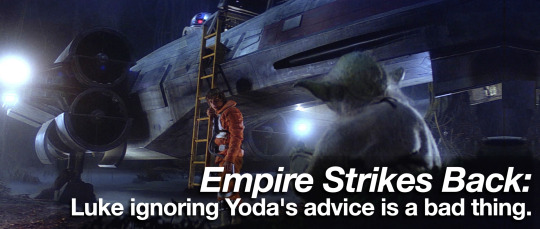
The myth:
Luke's Jedi mentors - trained to be dispassionate and mission-driven - callously tell him to let his friends die in service of a greater cause.
"In The Empire Strikes Back, Luke becomes Yoda's Padawan, and there are echoes of Anakin's training and the dilemmas he faced. Like Anakin, Luke is told he is too old to begin the training. Like Anakin, he has a vision of his loved ones suffering in captivity, and receives cold advice from Yoda, who tells him to sacrifice Han and Leia if he honors what they fight for." - Jason Fry, “Family Tradition; Rejecting the Jedi Teachings” Star Wars Insider #130, 2012

The intended narrative:
The Jedi are actually right on all points. Luke isn't ready or fully trained and he's arrogantly letting his emotions rule him and rushing into danger. By ignoring them, Luke gets himself into a spot of trouble that actually jeopardizes the lives of the very friends he tried to help, as they now need to rescue him.
“It’s pivotal that Luke doesn’t have patience. He doesn’t want to finish his training. He’s being succumbed by his emotional feelings for his friends rather than the practical feelings of “I’ve got to get this job done before I can actually save them. I can’t save them, really.” But he sort of takes the easy route, the arrogant route, the emotional but least practical route, which is to say, “I’m just going to go off and do this without thinking too much.” And the result is that he fails and doesn’t do well for Han Solo or himself.”
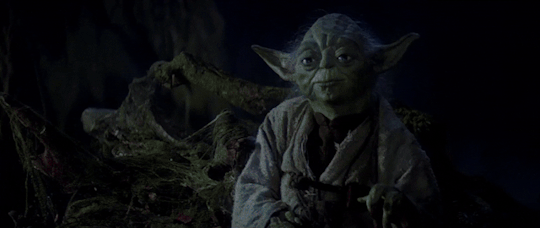
“Luke is making a critical mistake in his life of going after- to try to save his friends when he’s not ready. There’s a lot being taught here about patience and about waiting for the right moment to do whatever you’re going to do.”

“Luke is in the process of going into an extremely dangerous situation out of his compassion— Without the proper training, without the proper thought, without the proper foresight to figure out how he’s gonna get out of it. His impulses are right, but his methodology is wrong.”
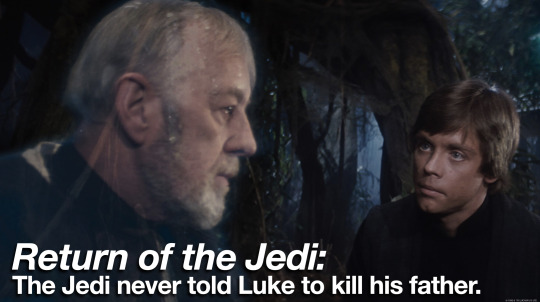
The myth:
The Jedi want Luke to repress his feelings and kill his father, to destroy the Sith, their religious enemies. As emotionally-detached Jedi, it is inconceivable that a Sith would come back from the Dark Side, and thus wrongly believe that the only solution is to kill Vader.
"It's easy to miss that Luke disagrees sharply with his Jedi teachers about what to do. Obi-Wan and Yoda have trained Luke and push him toward a second confrontation with Vader. He is, they believe, the Jedi weapon that will destroy both Vader and the Emperor. When Luke insists there is still good in Vader, Obi-Wan retorts that "he's more machine than man-twisted and evil." When Luke says he can't kill his own father, Obi-Wan despairs, "Then the Emperor has already won." But Obi-Wan could not be more wrong. It is precisely because Luke can't kill his own father that he defeats the Sith." - Jason Fry, Star Wars Insider #130, 2012

The intended narrative:
The Jedi never tell Luke to "kill" his father. That's just a fact.
They tell him to "confront" and "face" him.

Their bottom line is that Vader and the Emperor need to be stopped.
If Luke can manage to do so without killing his father, that's great.
"In Jedi the film is really about the redemption of this fallen angel. Ben is the fitting good angel, and Vader is the bad angel who started off good. All these years Ben has been waiting for Luke to come of age so that he can become a Jedi and redeem his father. That's what Ben has been doing, but you don't know this in the first film." - Star Wars: The Annotated Screenplays, 1998
(credit to @writerbuddha for finding the above quote)
The problem is: Darth Vader has a track record of murdering loved ones who refuse to kill him. Be it his wife...

... his father/brother...

... and if you're going by Canon, his little sister.

As such, there's a very strong chance that Vader might do the same to his son as well.
“A Jedi can’t kill for the sake of killing. The mission isn’t for Luke to go out and kill his father and get rid of him. The issue is, if he confronts his father again, he may, in defending himself, have to kill him, because his father will try to kill him.” - 1981 story conference, from The Making of Return of the Jedi
Now, as the last Jedi left, the fate of the galaxy rests entirely on Luke's shoulders.
If he dies, then the galaxy and its billions of inhabitants are doomed to live in a tyrannical dictatorship forever.
“He knows a confrontation is brewing between Luke and his father. Ben hopes Luke will either save his father or kill him, because whatever extra powers Luke's got in his lineage, he is the one person that can probably fight his father and win.” - The Star Wars Archives: 1977-1983, 2018
There's a time for talking things through... and a time to do your duty. Above all else, a Jedi's duty is to end conflict.
Obi-Wan was once tasked with this same duty.
And while he managed to weaken Vader considerably (thus avoiding the catastrophe of a full-powered Vader being unleashed onto the galaxy)... because of his attachment, he failed to kill Vader.

Twice, if you include the Kenobi show.

(A show which, per Pablo Hidalgo, is one of George Lucas' favorite recent Star Wars projects, a tidbit that doesn't surprise me one bit considering how much the series perfectly aligns with what Lucas said about Star Wars (see here, here and here))
Point being: because Ben failed his duty, the galaxy suffered for it.
Luke is now in danger of doing the same.
If he's unable to end the conflict in a peaceful way, then Luke needs to be ready to do so in a more permanent manner. Because while Luke has qualms about killing his father, there's a very big chance that the feeling won't be mutual.
So Luke isn't rejecting his teachers' orders to kill Vader. He's saying he's unable to confront Vader altogether, because he'll be half-assing the task. In the (very likely) worst case scenario where reasoning with Vader fails, Luke is concerned he won't be able to follow-through and do what he must.
Further, there's also a worse outcome to Luke dying: Luke joining the Dark Side and becoming yet another asset of the Emperor, more dangerous than Vader himself.
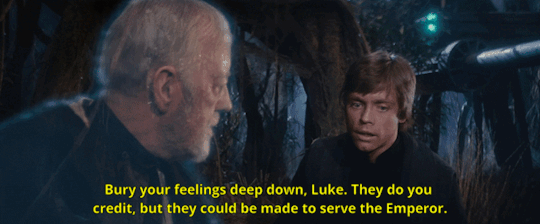
It's thus essential that Luke steel himself and mask his emotions, because the Emperor is a master manipulator who'll likely attempt to corrupt Luke via the strong emotions he has for his friends.
Obi-Wan is not telling Luke to repress his emotions. On the contrary, he acknowledges that these feelings do Luke credit. But the fact remains that when your opponent can jiu-jitsu those feelings against you and your friends, you need to keep a poker face.
And judging by how close the Sith Lords come to seducing Luke to the Dark Side...

... that advice is completely on point.

The myth:
"It isn't Jedi teachings that save the galaxy, but bonds the Jedi tried to forbid - such as the love of a father for his son, and a son for his father. Emotional attachments, in other words." - Jason Fry, Star Wars Insider #130, 2012

The intended narrative:
In Return of the Jedi, Luke isn't doing anything different than what other Jedi have done.
He does his best to avoid lethal force unless he deems that it is necessary (see his fight against Jabba's hostile forces).
He sacrifices himself for the greater good and let himself be captured, in order to allow the mission to be carried out.
He tries to reason with his enemy, hoping to avoid conflict.
He spares his enemy, showing mercy.
That's all standard Jedi stuff. We've seen other Jedi do all those things, both in the films and The Clone Wars.
If that isn't enough, just look at how Lucas describes what Jedi normally do (left), versus what Luke does in Return of the Jedi (right):
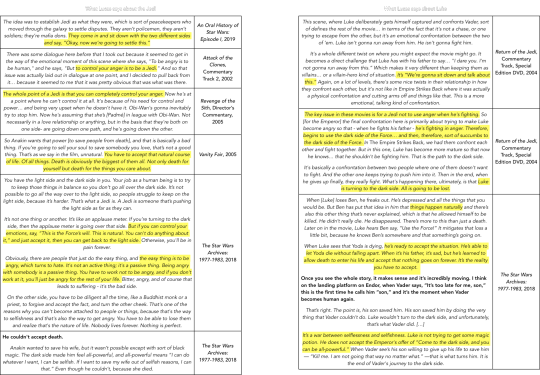
See what I mean? There’s pretty much no difference.
In Lucas' narrative, Luke isn’t “better than” or “rejecting the teachings” of the Jedi who came before him. He’s following the Jedi path. And he's really good at doing so.
Because this idea that Luke "rejects the teachings" makes no sense! They're Lucas' teachings. He agrees with the Jedi, they're the mouthpieces he uses to deliver the audience his own values.
Lucas having his main character do something he'd ideologically disagree with is something that doesn't make sense.
And part of this confusion comes from a misunderstanding of the word "attachment", in Star Wars.
It doesn't mean "emotional attachments" or "feelings" or "affection." It comes from the Buddhist principle of non-attachment.
It's not about depriving yourself of relationships or affection, it's about accepting that everything comes and goes and letting go of those very things you hold on to, when the time comes.
Lucas makes a distinction in his discourse between attachment and compassion.
"The whole idea of the movie, ultimately is that you have the Light Side and the Dark Side. The Light Side is compassion, which means you care about other people. The Dark Side is you care only about yourself. And you are obsessed with yourself. Getting your pleasure and getting all your stuff. The other one, you give it to everybody. You give goodness and health to everybody else. So the issue of love... there’s a line between loving somebody compassionately and caring about them and helping them. But the other line is not to be greedy or... once you are greedy then you get fearful. You don’t want to lose what it is you have that you are getting. So you have to learn to give up everything. And ultimately for a Jedi Knight, it’s very easy to give up." - Celebration V, Main Event, 2010
In-universe, this is something Anakin knew the theory of, but never really applied all that much.

Luke on the other hand, was able to learn the lesson and apply it.
Speaking in Lucas lingo, it's not Luke's attachment that makes him spare Vader. It's his compassion. And in turn, that compassion inspires Vader to do the same.
"It really has to do with learning. Children teach you compassion. They teach you to love unconditionally. Anakin can’t be redeemed for all the pain and suffering he’s caused. He doesn’t right the wrongs, but he stops the horror. The end of the Saga is simply Anakin saying, ‘I care about this person, regardless of what it means to me. I will throw away everything that I have, everything that I have grown to love - primarily the Emperor - and throw away my life, to save this person. And I’m doing this because he has faith in me, loves me despite all the horrible things I’ve done. I broke his mother’s heart, but he still cares about me, and I can’t let that die.’" - The Making of Revenge of The Sith; page 221
Or, to put things more simply:
Attachment (selfish love), is what makes Anakin do this:


Compassion (selfless love), is what makes Luke do this:


Now, could Lucas have made his narrative more explicit, to avoid confusion? Maybe.
But I think it's also fair to point the finger at the biggest cause of these muddied waters:
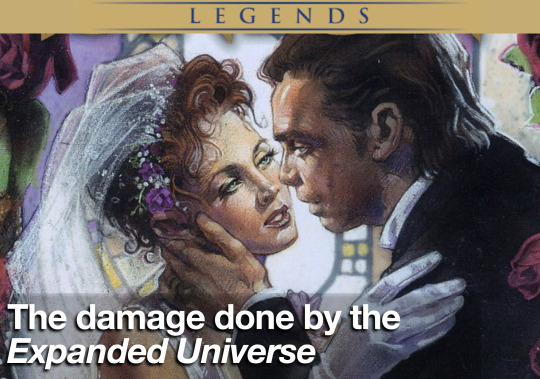
Simply put, the Expanded Universe (the Star Wars books, novels and games that spun out of the films) established new lore elements that didn't necessarily align with Lucas' vision of things. Namely:
Jedi can get married, and Luke marries Mara Jade.
Jedi can begin their training as adults, and Luke takes on many apprentices that are already adults.
When considering George's minimal involvement in the development of EU stories, it's easy to see why these plot points were allowed to come through.
But when he made the Prequels, his headcanons came to light and the above plot points needed to be retconned.

George Lucas' narrative:
"Nope. You can't be a Jedi and be married."
This isn't actually coming out of left field.
When Timothy Zahn asked for Luke and Mara to be married or engaged, back in 1993, Lucasfilm initially vetoed the idea.
And over the years, Lucas and other Lucasfilm employees have made it it clear that "Luke getting married" did not align with his vision (so much so that it's a plot point in Attack of the Clones).
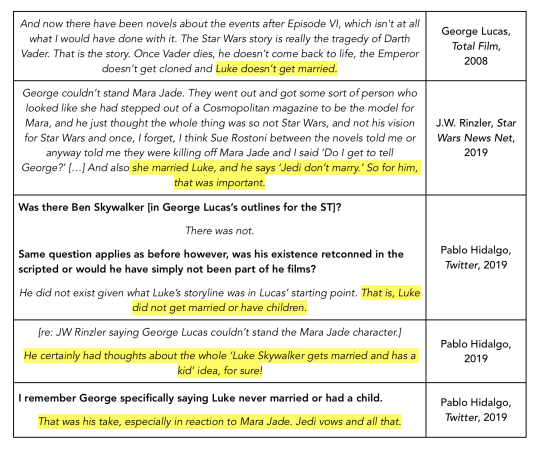
So the question becomes: why can't Jedi get married?
It's about commitment.
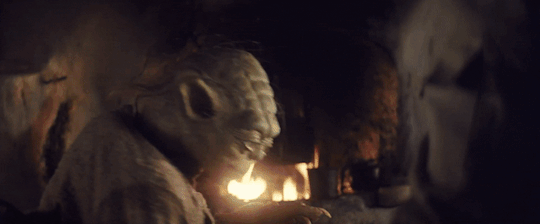
Simply put: you can't have two marriages. Eventually, your commitment to one of them will falter and you'll ruin them both. A Jedi is already married to the cause and to the Order.
If they want to get married, they have to leave the Jedi.
"One of the things [the Jedi] give up is marriage. They can still love people. But they can’t possess them. They can’t own them. They can’t demand that they do things. They have to be able to accept the fact, one, their mortality, that they are going to die. And not worry about it. That the loved ones they have, everything they love is going to die and they can’t do anything about it. I mean they can protect them as you would ordinarily protect, you know, ‘Get out of the way of that car.’ Somebody charges you with a gun, you knock the gun out, but there is an inevitability to life which is death and you have to accept that." - Celebration V, Main Event, 2010
And this is another example, really, of how Lucas' own values and past experiences shape the Jedi's teachings.
Marcia Lucas divorced George because he was constantly working on Star Wars, even when he wasn't directing it, which she said led to an emotional blockage in their marriage...
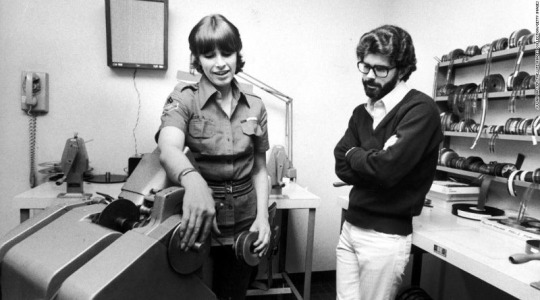
... and this leads us to the reason why George didn't double-down on the success of the Original Trilogy: he decided to take time off to raise his three kids as a single Dad.
He learned his lesson, reasoned that he wouldn't be able to be both a good, present father and a successful blockbuster film director.
When you're dealing with time-consuming commitments of this scale, you need to make a choice, or you'll end up (half-assing and thus ruining) both of them.
"Nope. Jedi get taken in as babies for a reason."
Once again, this has to do with Lucas' definition of "attachment."
"Jedi Knights get taken from their families very young. They do not grow attachments, because attachment is a path to the Dark Side. You can love people, but you can't want to possess them. They're not yours. Accept that they have a fate. Even those you love most are going to die. You can't do anything about that. Protect them with your lightsaber, but if they die they were going to die. There's nothing you can do. All you can do is accept that fact. In mythology, if you go to Hades to get them back, you're not doing it for them, you're doing it for yourself. You're doing it because you don't want to give them up. You're afraid to be without them. The key to the Dark Side is fear. You must be clean of fear, and fear of loss is the greatest fear. If you're set up for fear of loss, you will do anything to keep that loss from happening, and you're going to end up in the Dark Side. That's the basic premise of Star Wars and the Jedi, and how it works. That's why they're taken at a young age to be trained. They cannot get themselves killed trying to save their best buddy when it's a hopeless exercise." - The Star Wars Archives: 1977-1983, 2018
Jedi need to maintain objectivity and neutrality, in their day-to-day lives of mediating peace between planets.
And learning to "let go of your attachments when the time comes" is part of that training. But it is something that takes discipline and time, and thus the child needs to be young enough to develop this skill. Otherwise, they end up like Anakin, who always struggled to properly learn it and eventually was doomed by his greed.
This being part of Lucas narrative is also evidenced that in his earlier plans for the Sequel trilogy, he'd have Luke train children, not adults like he does in the EU.

"Luke is trying to restart the Jedi. He puts the word out, so out of 100,000 Jedi, maybe 50 or 100 are left. The Jedi have to grow again from scratch, so Luke has to find two- and three-year-olds, and train them. It’ll be 20 years before you have a new generation of Jedi." The Star Wars Archives: 1999-2005, 2020

The EU's retcons of Lucas' narrative:
Now, obviously, the addition of all these rules and other elements such as midi-chlorians... it does something to the older audience. They grew up on the Original Trilogy, dreaming they could be a Jedi too if they just believed enough. Now that bubble is burst.
"Wait, if I'm a Jedi I can't get married?! And I need to be taken in as a toddler, with a certain kind of blood score?! That's bullshit!"
More importantly... it goes against about a decade's worth of established EU lore (which Lucas never factored into his storytelling)!
So what does Lucasfilm Licensing do? They go with it.
They take these "weird" rules the older audience and authors don't like, and retcon a new narrative around them to ensure both the books and the new films all stay canon within the EU own continuity.
George Lucas revealed new information about his universe in Episode II that ran counter to earlier stories of the Expanded Universe. Among the surprises: the Jedi Order is monastic, with love and marriage forbidden to its members. This would necessitate reforms to the Jedi Code over time to separate the ancient era when Nomi Sunrider was married to a Jedi, seen in the Tales of the Jedi (1993–94) comics, as well as the post-Empire era when Luke Skywalker married Mara Jade in the comic series Union (1999–2000). LucasBooks also needed to create plausible exceptions for Ki-Adi-Mundi, a Jedi Master who had multiple wives in the Prelude to Rebellion comics (1999). - Pablo Hidalgo, The Essential Reader’s Companion, 2012
When it comes to Luke specifically, the narrative becomes:

"Uh... y-yes. The old Jedi Order forbid marriage, only took in toddlers and had a blood pre-requisite... which was weird, wrong, too detached, too systemic, and part of why their Order failed! But, uh, Luke's New Jedi Order allows marriage, unlike his dogmatic predecessors, because anyone can be a Jedi guys!" Hahaha! (fuck's sake George)
But as already explained above: those new rules aren't meant to be perceived negatively. It would make no sense if they were, they're based on Lucas' own values.
You know what it does do, though?
It cements the narrative that Luke is the One True Jedi™, who rejected the dogmatic teachings to forge a new path forward.
That's not the intended narrative of the Original Trilogy, nor the six-film saga as a whole.
If you've made it this far in the post (congratulations) and are interested to read another all-encompassing post about that, you can check out the link below :)
#long post#REALLY long post#meta#luke skywalker#anakin skywalker#ben kenobi#star wars#george lucas#jedi order#yoda#jedi#empire strikes back#return of the jedi#the empire strikes back#original trilogy#tesb#ESB#ROTJ#star wars rotj#sw rotj#darth vader#sam witwer#dave filoni#attachment
736 notes
·
View notes